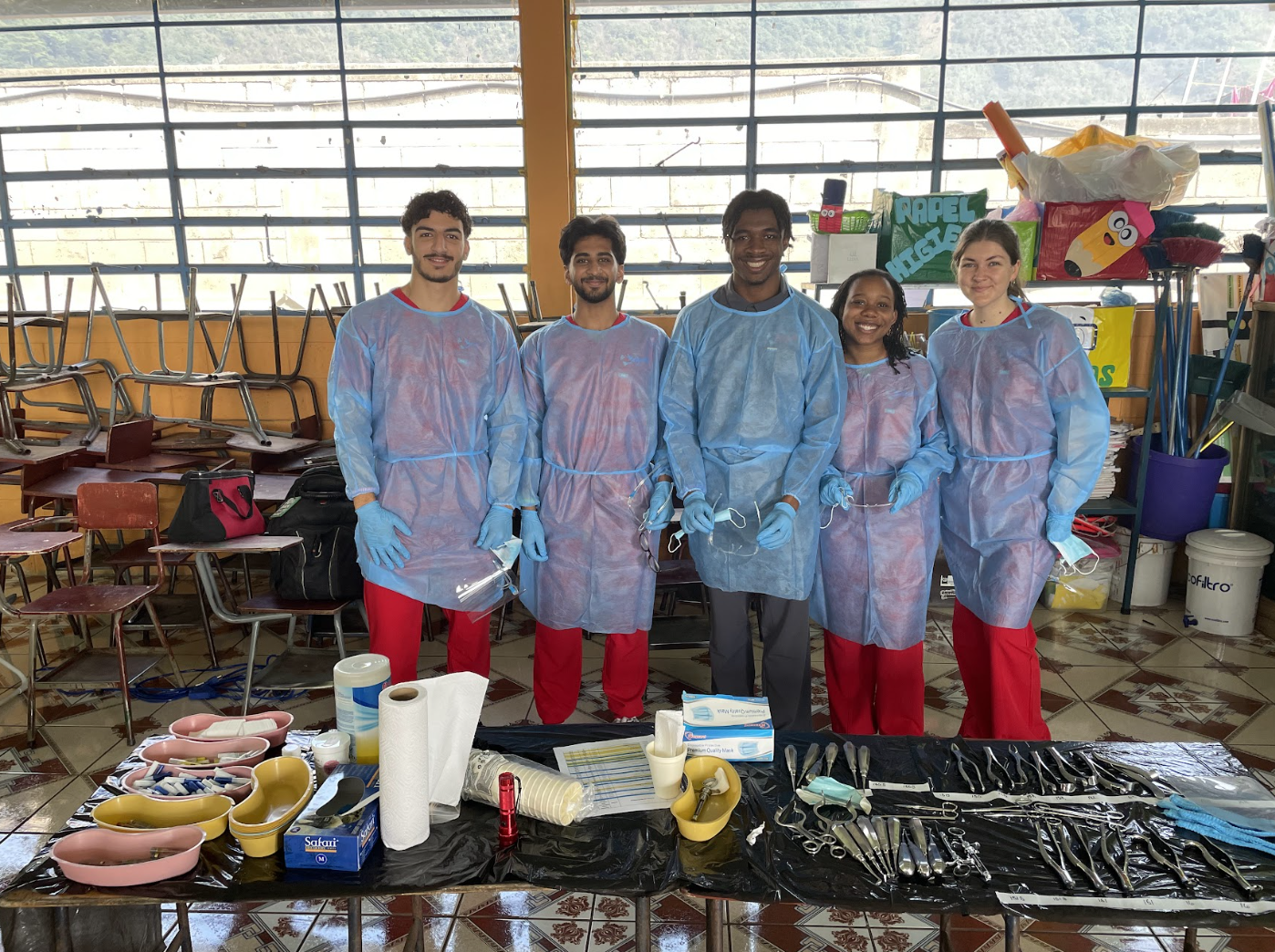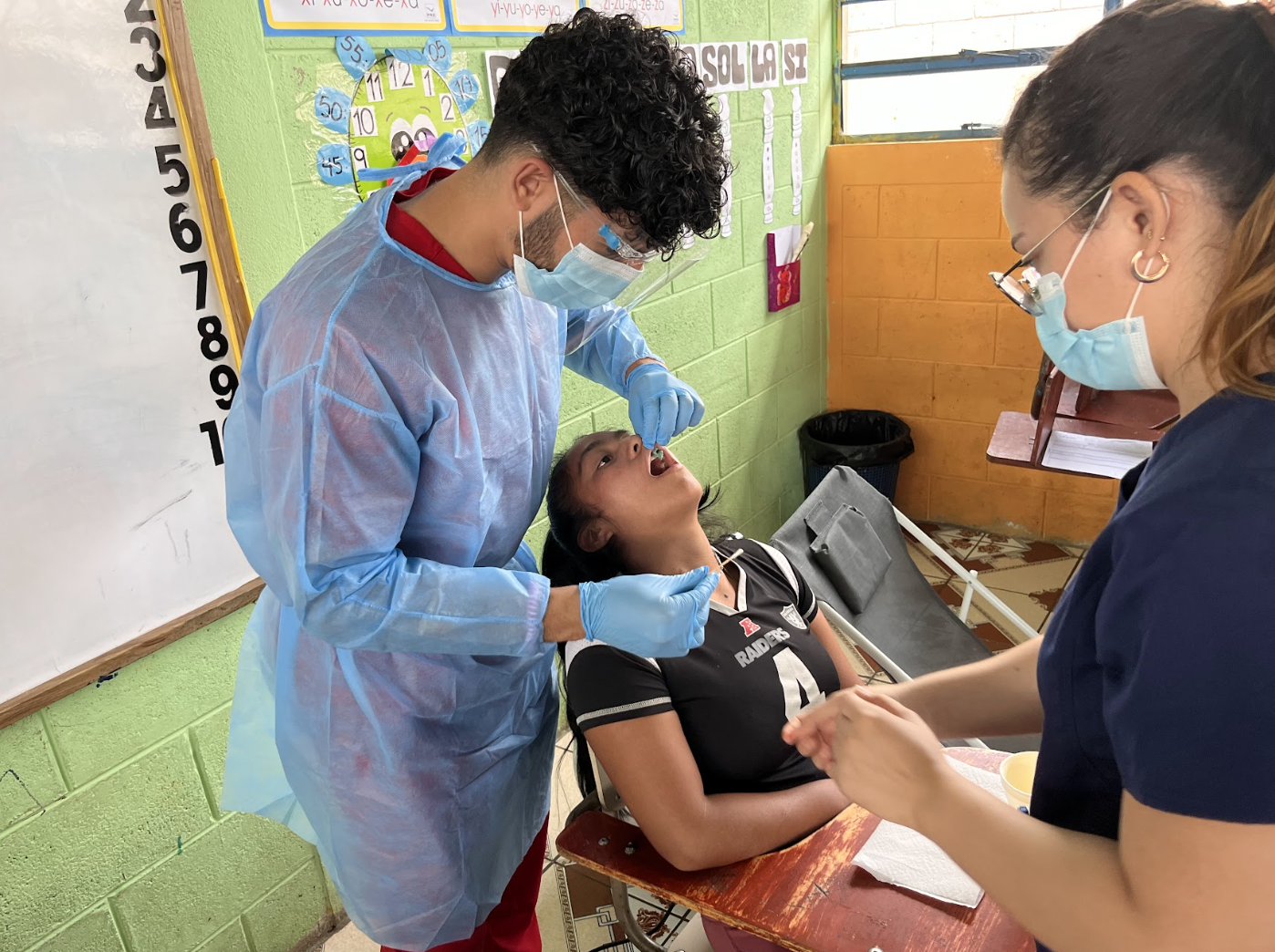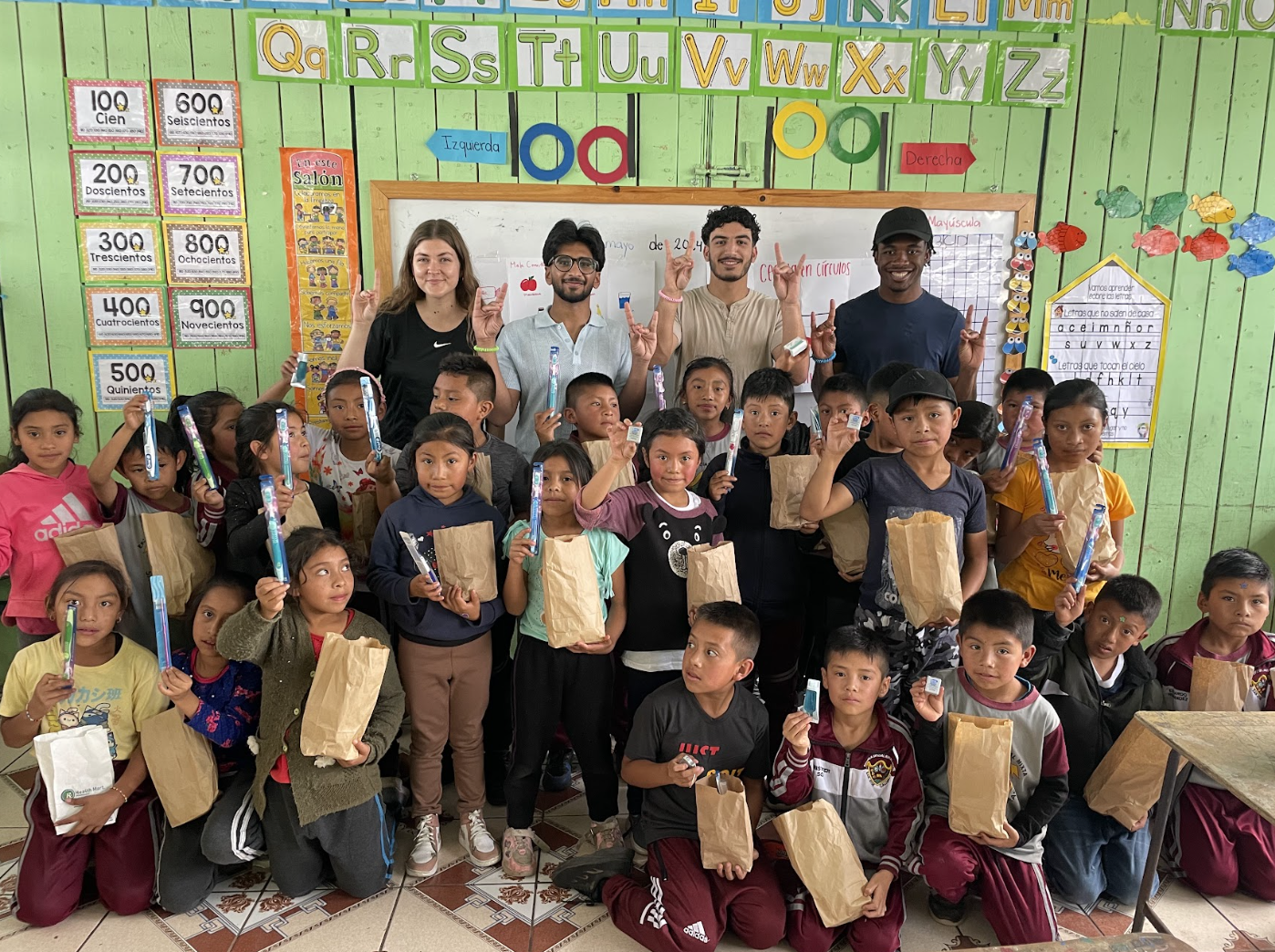by Razi Sayyed ’27
Razi Sayyed ‘27 is from Raleigh, North Carolina. He is a Genetics major with a minor in Biotechnology. On campus, he is involved in the Muslim Student Association and Pre-Health Club, and is a co-founder of the Global Medical Brigades Organization on campus. Recently, Razi received a Park Enrichment Grant to go on a Medical Brigade trip to Guatemala. Read his reflection on the trip here.
Global Medical Brigades is a non-profit organization that has worked in Guatemala, Greece, Panama, Honduras, Belize and Ghana. It provides an opportunity for students at different universities to go to clinics in these communities and support the people there while also gaining valuable clinical and service experience. Up to this point, there had not been a chapter for them at NC State.
I began planning NC State’s first medical brigade in November of 2023 and eventually led the first brigade in May 2024. On this trip, the team participated in various medical-related services for the rural communities in Guatemala. We worked at a local clinic where I helped triage patients (collecting vitals and medical history), packaged medications in the pharmacy and offered a health education seminar on oral hygiene to the children in the community. We were also given the opportunity to shadow the doctors and dentists as they consulted patients.

A highlight was being able to donate 400 hygiene kits to those children that included toothpaste, toothbrushes, floss, sunscreen, shampoo and soap. Since the community is tight-knit and small, we took a day to go door-to-door to visit families to ask about their living conditions, access to clean water, food availability and more. The information we collected will support the Global Medical Brigades and help them find communities that may need assistance.
I went into the trip already knowing that I want to be a physician. But this experience gave me a better understanding of my why. I met so many meaningful connections with people in the town we were serving and I also built friendships with my fellow brigade members.
When I decided to join the Global Medical Brigade, I thought that doing medical-related service abroad would be a fun way to serve another community while gaining medical experience. In the process of planning and leading this trip, I realized that I want to go on trips like these and further grow the Global Medical Brigades chapter at NC State because it gives pre-health students a better insight into the core of medicine— helping people. Almost all of my brigade team members told me that they wanted to continue pursuing trips like this and that seeing the conditions of these communities showed them their privilege and solidified their desire to help others.


One of the Guatemalan doctors I had worked with on the brigade taught me an important lesson that has stuck with me. He told me, “To me, this is medicine. This is being a doctor— not the system of only treating those that can afford or reach me.” This had a significant impact on me. The constant pursuit of experiences like this one changes an individual’s mindset and I truly believe our future healthcare system will be much better off if more pre-health students have experiences like this one.
My focus now is to support other interested students in leading their brigades and growing the chapter as much as possible. There are already two members of this brigade planning to lead one to Ghana next year and I plan to join that one as well. I am also working on starting a student organization for next year called “Bridging the Mind,” which focuses on serving individuals and families of individuals with severe mental disorders. It aims to educate members and the community on these disorders and direct people to resources such as counseling, therapy, education and diagnosis.